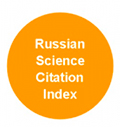The demographic revolution is changing the reproductive strategy of Homo sapiens
Abstract
The demographic revolution (demographic transition) is changing the reproductive strategy of the species Homo sapiens. The whole evolution of life on Earth, including social evolution since the beginning of human society, has led to this triumph of theK-strategy of reproduction. This universal revolution has a crucial importance for the present stage of human history. The cause-and-effect relationship between economic, social and demographic changes is discussed, the interpretation of changes in the mass reproductive or family behavior as primarily a direct consequence of economic, social or cultural shifts is contested. Such explanations are redundant since the main changes in demographic behavior are a response to the necessity of restoring the demographic equilibrium upset by an unprecedented decline in mortality. At the same time, such explanations lead to an underestimation of the impact of demographic change on economic, social and cultural dimensions of the development of modern societies.
The demographic transition theory in its present form hinders the vision of this transition as an integral stand-alone process that has its own internal determinants and at the same time has a powerful impact on all social processes, including processes at the global level. The global logic of demographic transition theory is opposed to the widespread local logic, according to which this theory must be justified by the experience of each state.
An attempt is made to overcome the current fragmentation in the description of the demographic transition and its splitting into multiple “transitions” and “revolutions”, and to consider it as a cohesive process, that is, a sequence of inevitable major stages of a single global “chain reaction” initiated by an enormous decline in mortality.




















